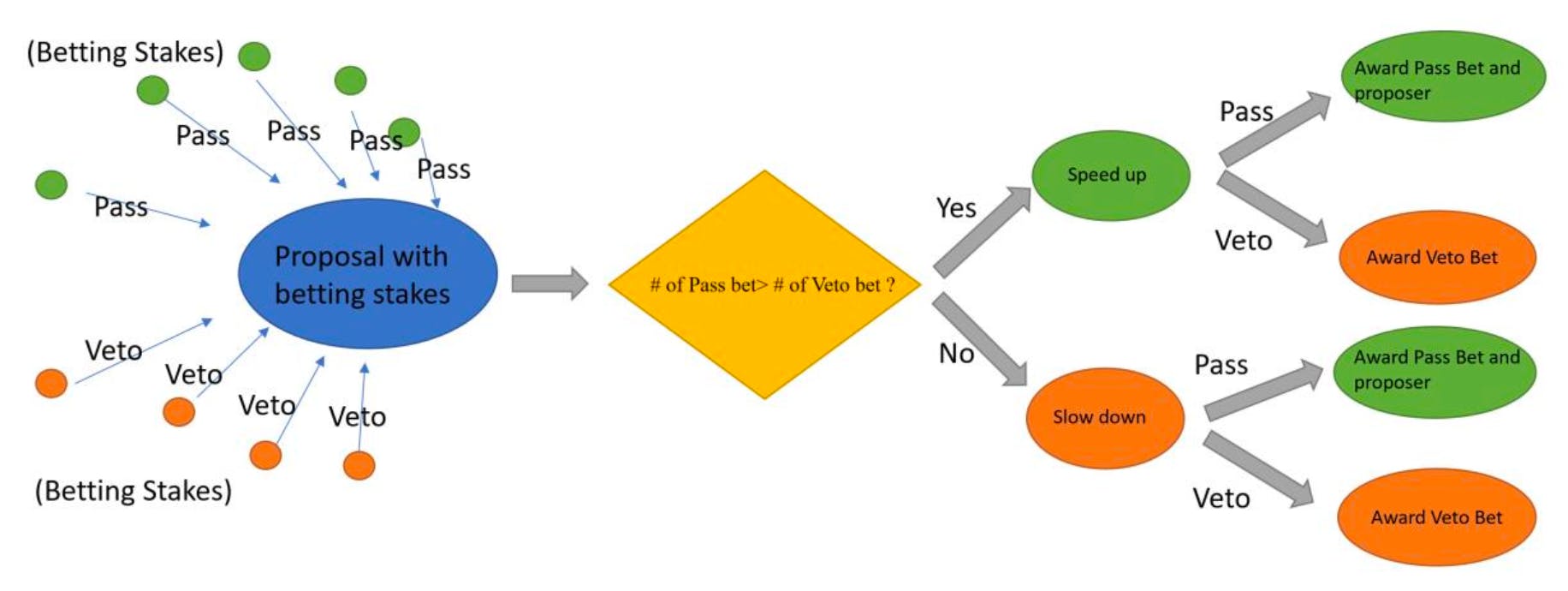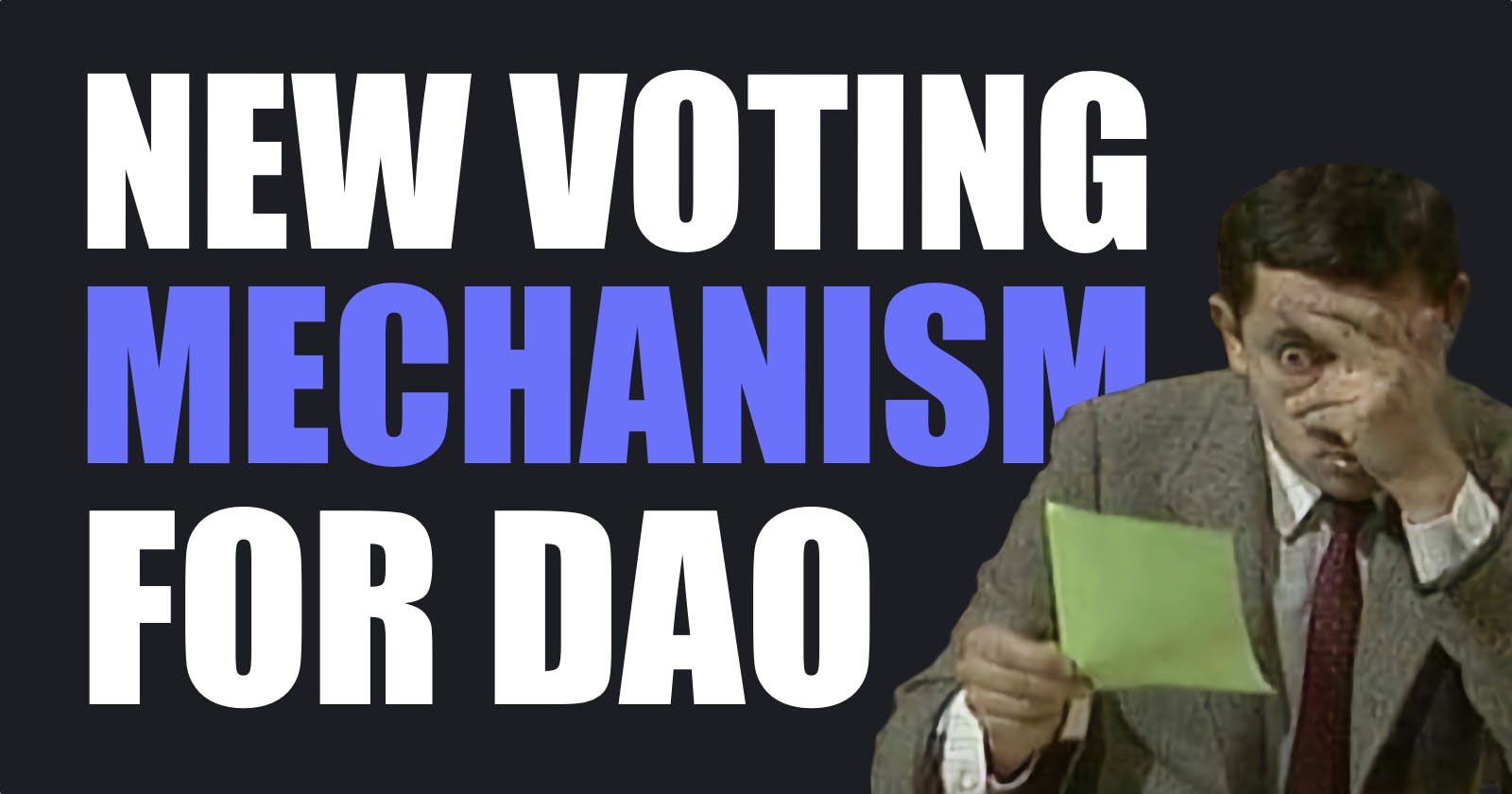Table of contents
The Singapore University of Social Sciences has proposed a new hypothetical voting mechanism for a purely decentralized and permissionless DAO governance. The proposed design is to accelerate conviction voting with a Holographic mechanism.
A voting member in a DAO is someone who has a stake in the resources of the DAO. The more resources they have, the more voting power they have. To prevent one person or group from having too much power, the voting process uses conviction voting. This means that new members or those with large stakes don't have more power than others. When someone submits a proposal, there is a time limit for it to be passed. If it can't be passed in that time, it fails. This is called a veto possibility.
To address the issue of slow approval times for urgent proposals in conviction voting, a blind betting mechanism has been introduced. Members can place bets on proposals using a certain number of their tokens. The bets are anonymous to all participants. If there are more "pass" bets than "veto" bets, the governance power will be accelerated, and the proposal will be approved faster. If there are more "veto" bets than "pass" bets, the governance power will be slowed down, and the proposal will fail faster.

Incentive programs are used in the betting process. If the proposal is approved, "veto" tokens will be taken. Some of the taken tokens will be given to the submitter of the proposal, and the rest will be given to those who bet "pass" proportionally based on their bet. If the proposal fails, "pass" tokens will be taken. But there's no reward for the proposal submitter, and the taken tokens will be given to those who bet "veto" proportionally based on their bet. Since the betting process is anonymous, there may be only one type of bet. If everyone bets "pass" or "veto," then no rewards will be given. However, the proposal will still be either fast-tracked or slowed down.
The incentive schemes encourage people to submit good proposals that are more likely to pass and get rewarded. The betting process also motivates voters to vote carefully if they bet on the proposal. This helps speed up the approval of urgent and good proposals. This process is more efficient than a pure conviction voting mechanism.
The suggested plan can also work in a controlled environment. This type of setting is commonly found in secure databases that only allow authorized access. Although there are limitations on who can participate, these restrictions do not affect the voting process itself.
Conclusion
In conclusion, the Singapore University of Social Sciences has suggested a new voting method for decentralized and permissionless DAO governance. This new method combines three techniques: conviction voting, Holographic mechanism, and blind betting. The idea behind blind betting is to encourage voters to be careful when voting, while also speeding up the process of approving proposals. The incentive schemes encourage people to submit good proposals that have a greater chance of passing and getting rewarded. This new voting method can also be used in a permission scenario. In general, according to the Singapore University of Social Sciences, this new voting method can provide a more efficient and fair way of managing DAOs.

